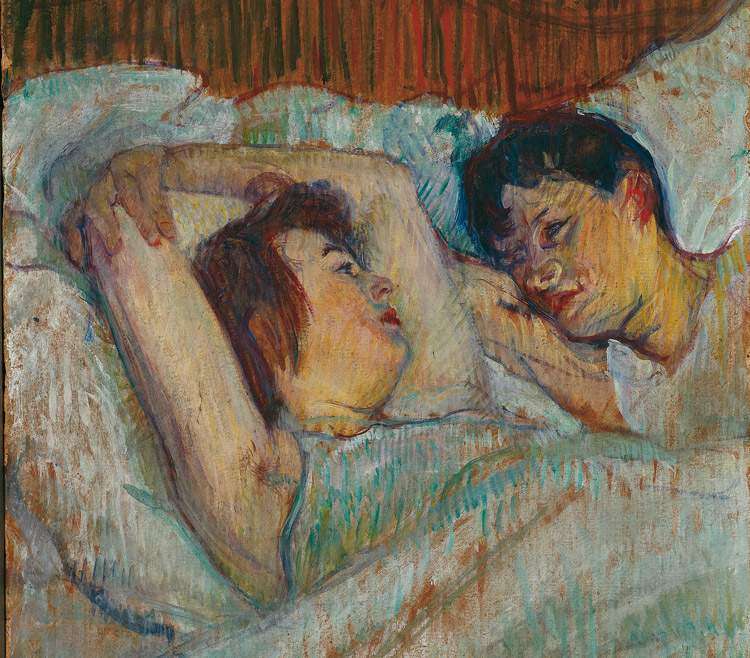May 17 marks the International Day Against Homophobia, established since 2004. We receive and publish an open letter from Nicla Vassallo (full professor of Philosophy at the University of Genoa) and Sabino Maria Frassà (artistic director of Cramum and development director of the Cure Onlus Foundation) that intends to launch a message against all forms of discrimination and intolerance, with the hope that the day that falls today is not just “yet another” day against a specific form of discrimination, but is a moment of reflection on the need to accept oneself and others.
The word “different” is a word that increasingly characterizes our lexicon. To the ear, this word often recalls its most negative meaning, and etymology does not seem to give many excuses in this regard: in fact, “different” derives from the Latin word “diversus,” which means “face from the other side,” “opposite,” or “contrary.” This adjective should be used to indicate that which presents itself with a distinctly different identity, nature, or conformation from other people or things.
The concept of diversity-which is so widespread today-has always had considerable resonance in philosophical circles as well. In the past, such a “category” was often applied to justify slavery as a consequence of an alleged diversity by nature and superiority of some human beings over others. It should then be recalled how Aristotle argued that women were “different” by nature from men, recognizing the latter as having all the merits as opposed to the defects proper to the female “gender.”
In the 19th century ,John Stuart Mill and his wife Harriet Taylor, on the other hand, theorized thegroundlessness of the category of diversity, which would indeed be mere human constructs of hindrance to happiness, the ultimate goal of all humanity and not only of the individual human being. This denial of the category of “different” was then modulated and assimilated in the 20th century in dichotomous ways: while most feminist philosophy praised diversity as a function ofanti-homologation and individual development, some conservative philosophers such as Roger Scruton identified diversity as social sanity, without which one would be all/all narcissistic - reference is made to the well-known and contradictory Sexual Desire: a Philosophical Investigation.
We wonder whether, after centuries of discussion, the Mill-Taylor couple might not have been right in arguing that the very category of “different” is simply wrong and the generator of major social divisions. If we reflect well, such a category is the cause of all the historical tragedies of the 20th century. All regimes in order to justify their reason for existing have adopted and cannot but adopt such a category: Nazism, fascism and even to a certain extent communism finally found their reason for existing in the fight against the enemy, against what was different from their own dogma.
Those who adopt the category of different, understood as the existence of a hierarchy (even by nature) of one human being over another or of a “majority” over a minority, are in fact arguing for homogenization. We would therefore like human beings to be able to free themselves from the need to be different from someone and prefer being different, that is, being distinct from their surroundings .
We do not believe that there are different human beings, but “different” human beings. Each of us, should think for two minutes and talk to ourselves honestly, perhaps look in the mirror and ask ourselves: who am I the same as?
I am me, I am not the group(s) I say I belong to: what is the point of flags (of any gender, orientation and/or color)? I am an infinite story made up of combinations and occasions, of my interaction with the outside world and with the contingent time lived. I can only be unique and different from all other human beings who have come before and who will come after me. If each of us could mature that awareness, we would have a world of adult people who are (have been) able to fully develop and unfold their personal identity. Only then would we experience the compassion necessary to understand that we are all unique and different, but ultimately profoundly equal, destined to share the same "cell," our lives, our knowledge of being today and having a limited time to live.
“Oh my poor buffalo, my poor beloved brother, we stand here, both so? helpless and torpid and we are one in pain, in weakness, in longing.”
From A Little Compassion by Rosa Luxemburg, 1917.
Image: Henri de Toulouse-Lautrec, Au lit (1892; oil on cardboard; Zurich, Foundation E.G. Bührle Collection)
 |
| Day Against Homophobia, an open letter to reflect on discrimination and acceptance of self and others |
Warning: the translation into English of the original Italian article was created using automatic tools. We undertake to review all articles, but we do not guarantee the total absence of inaccuracies in the translation due to the program. You can find the original by clicking on the ITA button. If you find any mistake,please contact us.